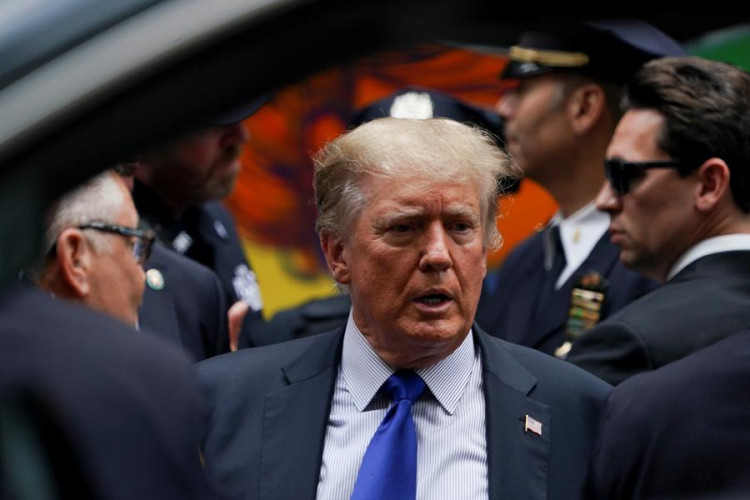The U.S. Supreme Court on Thursday will consider former President Donald Trump's unprecedented claim of total immunity from criminal charges related to his attempt to overturn the 2020 election results. The court's ruling on this politically fraught issue could have significant implications for the timeline of Trump's federal election interference trial and his bid for re-election in 2024.
Trump's attorneys argue that the entire election interference indictment should be dismissed based on the assertion that his actions were "official acts" taken while in office. However, most legal experts question the validity of this broad immunity claim, and the court's decision on the extent to which official acts are protected will be crucial.
The case has put the Supreme Court, which has a 6-3 conservative majority, including three justices appointed by Trump, under considerable scrutiny. Critics have already accused the court of delaying its decision to take up Trump's appeal, which some view as a victory for the former president.
In February, a federal appeals court ruled that Trump was not immune from prosecution, stating that "former President Trump has become citizen Trump, with all of the defenses of any other criminal defendant." The court emphasized that while executive privilege may have protected him during his presidency, it no longer shielded him from prosecution.
The federal indictment, returned by a grand jury in Washington, D.C., in August, consisted of four counts: conspiracy to defraud the United States, conspiracy to obstruct an official proceeding, obstruction of and attempt to obstruct an official proceeding, and conspiracy against rights. Special counsel Jack Smith, who is leading the prosecution, argues that Trump has no immunity and that the case should proceed to trial immediately.
Trump's lawyers, on the other hand, cite a 1982 Supreme Court ruling that granted presidents immunity from civil suits when the alleged conduct falls within the "outer perimeter" of their official duties. However, this case has never been applied in the criminal context.
Constitutional law experts overwhelmingly side with Smith, dismissing Trump's immunity claim as nonsensical. Michael Waldman, president of the Brennan Center for Justice at the New York University School of Law, has excoriated the court for even appearing to entertain the argument, stating that the justices have already done "great damage" by delaying the trial.
The Brennan Center participated in an amicus brief in which leading constitutional historians show that presidents have never been placed above the law. The brief cites the words of James Iredell, one of the first Supreme Court justices, who said in 1788, "If [the president] commits any crime, he is punishable by the laws of his country."






